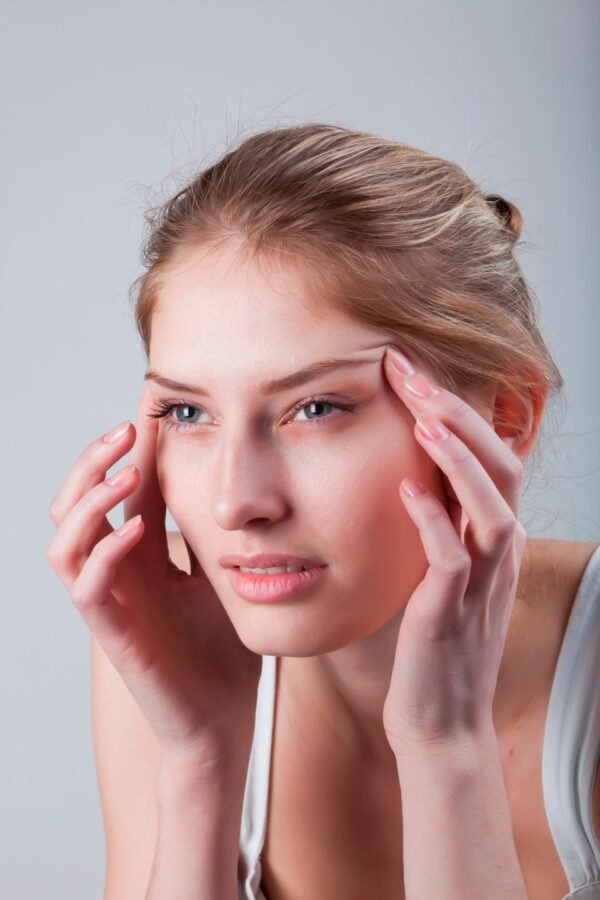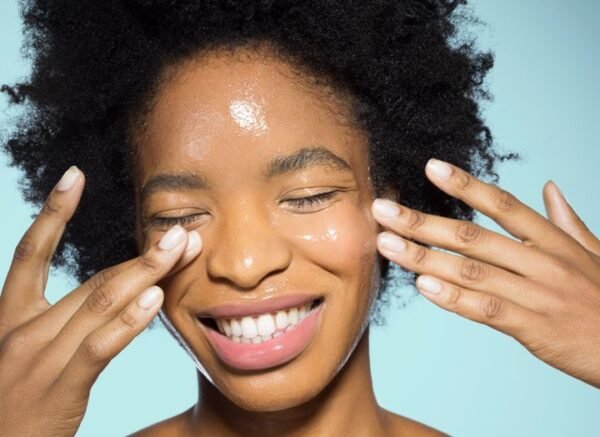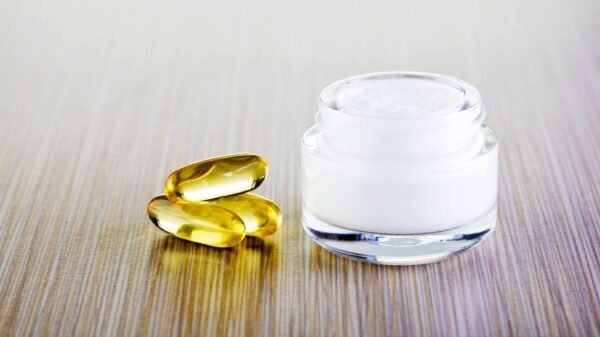
Made of water, protein, fats and minerals, your skin is your largest organ, weighing about eight pounds (3.6 kilograms). It protects you against harmful chemicals and disease-causing microbes. Your skin also helps regulate body temperature. And, more often than not, your skin is most people’s metric for estimating your age. Genes play a part, but lifestyle choices make a huge difference to how we look.
Collagen and elastin are the two critical proteins of human skin. Collagen is essential for preserving your skin’s firmness and elasticity. Plus, it has antioxidant and reparative properties, which is crucial for repairing damaged or wrinkled skin. Collagen production decreases by 1% every year after the age of 25.
Elastin, which is about 2% of skin protein, is essential for your skin to stretch and recoil. As you age, your body produces less elastin, which can result in common age-related skin issues, such as fine lines, sagging, and wrinkles. Studies show that the most severe damage to elastin occurs in photo damaged skin – that is skin damaged by Ultraviolet sunlight causing DNA changes at a cellular level.
There are a number of lifestyle factors that can delay or accelerate skin ageing.

1. Sleep and skin
Your skin cells produce collagen when you are asleep. Good sleepers typically look younger than they might otherwise, while bad sleepers lose more water from their skin. Interestingly, those who get enough sleep daily also have a better perception of how they look.
Chronic sleep deprivation is detrimental to your skin health. According to the National Institute on Aging, older adults need seven to nine hours of sleep each night.
2. Hydration and skin
Dry skin is notoriously prevalent in older adults. The NHS Eatwell Guide suggests we should drink six to eight cups of water a day, others suggest two litres. However, your individual needs may vary depending on your overall health, the medications/supplements you take and your level of activity.
Another way to improve your skin hydration is to apply a moisturiser, especially ones with batana oil. Moisturisers trap water in your skin’s outermost layer, giving it a youthful appearance.
3. Exercise and skin
Exercise nourishes your skin cells, clears toxins from the skin and reduces stress. Aerobic exercise (including walking, jogging, swimming, and cycling) has been shown to increase the skin’s collagen content in previously sedentary older adults.
Exercise not only keeps your skin youthful but can also help improve or reverse the signs of ageing. That is even the case when you start exercising later in life.
4. Alcohol and skin ageing
Alcohol increases inflammatory chemicals in the skin, and drinking too much alcohol causes dry skin – alcohol is a diuretic (i.e., a substance that increases urine output). Consuming more than eight alcoholic drinks per week is associated with increased upper facial lines, under-eye puffiness, oral commissures, midface volume loss, and visible blood vessels. If you do want to indulge now and again, make sure not to go overboard.
5. Smoking and skin ageing
Smoking is bad for you in so many ways, including negatively impacting skin health and accelerating skin ageing. Nicotine—the main addictive substance in tobacco products—promotes skin cell death and impairs blood flow to the skin. Smoking a pack of cigarettes for approximately one year can increase wrinkling three-fold, that’s according to a study in the journal JAMA Dermatology.
Vaping, often considered a safer alternative to cigarette smoking, can actually be just as detrimental to your skin as smoking cigarettes – vapes contain nicotine. According to a 2021 study, e-cigarettes contain as much nicotine as conventional cigarettes.
Collagen supplements – can they help?

A growing body of evidence supports the use of oral supplements to reduce signs of (or delay) skin ageing. In a 2018 randomised trial of females aged at least 40 years old, the women were divided into two groups. The first group received 1000mg of low molecular weight collagen peptide once daily for 12 weeks, while the second group received an identical formulation but with no collagen.
Assessment at baseline and after six weeks and 12 weeks revealed that skin hydration and improvement in wrinkles were significantly higher in the group receiving collagen.
Another study (on Chinese women aged least 35 years old) concluded that collagen hydrolysate with a higher content of Pro-Hyp and Hyp-Gly resulted in increased improvement in facial skin moisture and elasticity, with a reduction in wrinkles and roughness. And according to a 2022 review, oral collagen supplements improve skin elasticity and hydration and decrease wrinkling and roughness.
Many tablet supplements contain small quantities of collagen. Liquid supplements such as Cutizana from Clinic Nutrition, contain 10,000mg of Types 1 & 2 collagen per serving, which provides the essential amino acids for the production of collagen, elastin and keratin.
Summary
If you want to look youthful, look after your skin – hydration, sleep, nutrition, and exercise are all important.
ABOUT THE AUTHOR:
Polly Clarke is from Clinic Nutrition Ltd., which produces a range of high-quality, broad-spectrum liquid supplements that are supplied to clinics, and direct to the consumer. These include Vitaliti (for general health and wellbeing), Cartonica (for joint health) and Cutizana (for hair, nails and skin). www.clinicnutrition.co.uk
